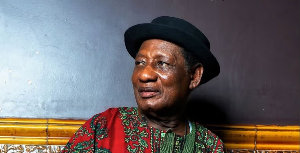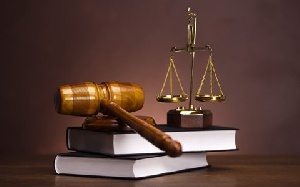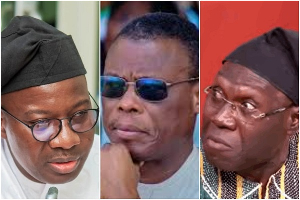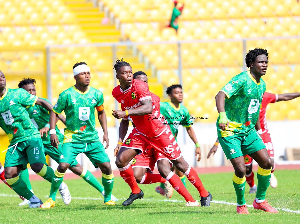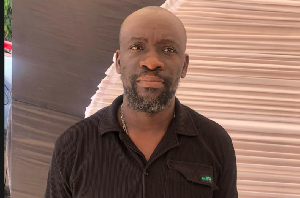It is a common saying that 'where there is no law, there is no justice'. Thus anything goes! One thing about law is, justice premised itself on the rule of law. But first, the law must be in place, for justce to premise it self on such law.
One is therefore constantly force to ask if indeed ECOWAS law does exist for the ECOWAS justice to exist in accordance to the Regional laws. We will then be focusing our first point of dealing with this question to the question of what is a law and what should be ECOWAS law, as it is irresponsible to start talking about ECOWAS law, if we do not have a clear understanding of what is a law?
A law 'is, generally, a system of rules which are enforced through social instructions to govern behaviour'. Merriam Webster also defined law as "a rule of conduct or action prescribed or formally recognised as a binding or enforced by a controlling authority". So in line with the above definitions, ECOWAS Laws shall be understood to be generally a system of ECOWAS rules which are enforced through ECOWAS institutions to govern all behaviour relating to ECOWAS."
This then entrust on us to confirm whether ECOWAS laws exist or not, as such law must exist for its institutions like the ECOWAS Court of Justice to formally refer to itself as such and act accordingly.
In fact, the ECOWAS Court of Justice does not only exist in name but very active in functioning to adjudicate over contentions involving individual ECOWAS Citizens, institutions and member states of West Africa. So, the existence of the court and its activities are proof that ECOWAS laws exist.
The most recent case adjudicated by the ECOWAS among several others, is the c ase brought to the ECOWAS court by Sambo Dansuki (Former Nigerian National Security Advisor) against the Federal Government of Nigeria.
The ECOWAS Court rule on Mr. Dansuki's petition that his right had been violated by the Nigerian government for holding him in detention since December 2015. The Nigerian government detention of Dansuki was based on allegation of embezzlement involving billions of Dollars and possession of fire arms.
The ECOWAS pass a judgment in favour of Dansuki for unlawful detention against the Federal government of Nigeria. Ironically, the Nigerian government refused to obey the ruling of the ECOWAS Court and thus failed to follow the instruction given by the ECOWAS Court.
So while Dansuki was in detention pending the establishment of the position of the Nigerian law in proving the plentiff guilty and therefore imperisonment, the lawyers of the plentiff went to court to seek for his release from detention.
The position of the lawyers of Dansuki is, it is unlawful to perpetually keep their client in caciration while the case is still in court. The Dansuki lawyers therefore asked for their client to be release to attend court when ever he is needed and to be able to effectlvely defend himself, than keep him locked up. The lawyers argued that it is unjust to keep their client in detention as that violate his fundamental right.
The Nigerian government on its part argued that the amount involved is huge and with enough evidence to convict the detained individual in court, leasing him is not in the best interest of the state. So it will be risky to grant Dansuki any bail, as they believe he will jump bail and run away to the Republic of Niger when release. The Nigerian Federal government therefore insist on having to keep the accuse in detention till he is finally sen tenced.
All effort to get the Nigerian authority to obey the rulings of some Nigerian courts in upholding the fundamental right of the accused fell on deaf ears. So after exhausting all effort and having three courts in Nigeria ruling against the Nigerian authority failing, the lawyers of Dansuki seek for justice in the ECOWAS Court.
The ECOWAS judges sat on the case and came out with judgement in favour of Dansuki for the government of Nigeria to grant the accuse person a bail. The Nigerian government still remain adamant to honor the instruction of the ECOWAS Court.
So what we are saying at this point is, the Nigerian Federal Goverment is refusing to obey the rule of the ECOWAS Government. Thus the whole of ECOWAS, best expressed as the West African Government has pass a judgement against Nigeria Goverment and the latter is disobeying.
This as well means, a citizen of ECOWAS has seek for justice before the whole of West Africa, under the higher umbrella authority of ECOWAS against the Nigerian Government and the latter is disobeying the rule of the Almighty ECOWAS Government.
The question at this point is, does the ECOWAS Govenment law really exist? Does the West African region exist as a single socio-eco-political institution with its own laws like the Federal Government of Nigeria does or not? If such law does exist, who are responsible for the making of the regional laws? It is also fair to ask whether the ECOWAS law is superior to the Nigerian law or the opposite is the case?
One can go further to ask, whether the member states of ECOWAS are free to choose which of the ECOWAS laws they are to obey, as they please and the one they can choose not to obey? One can then sum the whole thing up saying, either Nigeria does not recognise the ECOWAS laws or the ECOWAS laws is not good enough to command the respect the ECOWAS Gove rnment deserve from the member state of Nigeria?
In shifting the focus of our attention from the act of disobedience by Nigeria to why the ECOWAS law is being disobeyed by any of her member states, it is fair to explain that the kind of respect any law command depends on how the laws are made. If the ECOWAS laws exist, who is responsible for the making of the regional laws and what kind of law do we call law presently associated with ECOWAS? Definitely, referring to the ECOWAS law as "useless law" is not good enough or help to solve any problem.
In fact that defeat the whole purpose of giving individuals, institution and nations within the Union the opportunity of seeking for justice at the regional level, when justice is due. It is rather fair to ask whether the ECOWAS laws is Advisory laws or Instructional (legislative) Laws, as the Nigerian Government is proving the former to be the case, where an entity can choose to obey an advisory law but has no such choice over instructional (legislative) laws.
In the EU, the above act of Nigeria in ECOWAS is called "Cherry Picking". Since the EU is run purely on legislative laws, 'cherry picking' is not an option and has no place in the EU Government for any individual citizen, institution or member state government.
The question here is, do we want ECOWAS to continue to be an Advisory Institution or an Instructional (legislative) Institution in matters of such serious fundamental concerns? If the Nigerian Government is choosing to disobey the ECOWAS law, then who is the ECOWAS law in place to rule and serve if such law even exist? If ECOWAS laws does not exist, then which law are all the institutions of ECOWAS functioning by? Is this telling us that all the ECOWAS institutions operate by their own devises than clear instructions of ECOWA S laws. Thus by what law is the ECOWAS Court of Justice, interprating the challenges of injustice in the regional body?
An interesting thing about the ECOWAS judgement above is, it look like the Regional Government is not judging the cases before her based on her own West African laws as the "Court was said to premise her position on the manner of arrest and detention of Mr. Dansuki were contrary to Article Six of the African Charter on Human Rights and Article 9 (1) of the International order on Civil and Political Rights." The big question here then becomes whether the judgement is by ECOWAS government and therefore ECOWAS laws or by the AU and UN International institutions?
Equally, if in Ghana, the Ghana government laws are made by Ghanaians binding on the citizens, institutions and government of Ghana, ECOWAS laws must be made by West Africans to be binding on ECOWAS citizens, institution and member states of ECOWAS. Judging ECOWAS citizens based on laws credited to the African Union and international laws, is totally out of place. No wonder the Nigerian government is choosing to obey or disobey.
The current challenge face by ECOWAS is, none of her 15 member states obey any of the laws the regional body claim to be governing the people by, talkless of other countries or Unions outside West Africa. Institutions like the EU countries, the EU itself, China, the UN, Russia, the USA, South Africa and India, have no reason to respect the ECOWAS as the West African regional laws means nothing to anyone including the ordinary citizens of the ECOWAS itself .
Since the respect any entity commands as a person, groups, countries and Unions, from other entities depends on the law the entities involved live by, how can we command anyone's respect with our current approach of making laws for ECOWAS? Again if how we make our laws have everything to do with how such laws influence others to command their respect, how can the ECOWAS government command anyone's respect with our current approach of appointing Ghanaian parliamentarians to double up as law making for ECOWAS? If the Nigerian government case with Dansuki is a clear evidence of how even the powerhouse of ECOWAS perceive her own Union, then one can say, we are the cause of our pathetic reputation haunting us across the world.
The biggest and most important question is, why is the ECOWAS laws Advisory than Instructional? If Germany, France and even Great Britian dare not disobey the rules resulting from the EU laws, why is Nigeria or The Gambia choosing to obey or disobey the ECOWAS laws? The only answer to this again lies in the obsolete ways on how we go about choosing our Members of the ECOWAS Parliament.
It all start with whether we can be honest in refering to the ECOWAS law as democratic or Undemocratic, for the rules of the regional body to be democratic or undemocratic? Indeed when we talk about the Rule of Law, we ask for whose law? Are the ECOWAS laws made by the Members of the ECOWAS Parliament or they are made by sources the majority of the West Africans do not have anything to do with, sine in a democratic environment laws are made by elected members of parliament?
Well, when we talk about law, the first thing that crosses the mind of the lay man, is the judge in a court of law. In fact it takes more than ordinary level educated person to know that the most critical point to the business of law making in a democratic dispensation is the parliament.
In the case of ECOWAS, all ECOWAS laws are suppose to starts from the Parliament of ECOWAS. So, if the ECOWAS Parliamentarians are not making laws for ECOWAS institutions, citizens and member states, then we will continue to live with Advisory laws, even in serious circumstances where legislative laws are inevitable. Nigeria or Cape Verde, can then hide behind their selfish interest to opt for their own version of justice that totally contravane the fundamental rights of citizens in the Union and defeat the ultimate purpose of our Union .
More than anything else in the world, what the ECOWAS desperately need are regional working laws. Decrees and sovereign instructions from military men and ethno-tribal kingdoms of West Africa, are now obsolete in the face of democratic vibrant politics of ECOWAS.
The democracy of all the West African States are struggling to actualise the dividends that come with the system, as the real benefits associated with democracy are not being realise. We are getting weaker by day amidst our democratic struggle than the collective strength for which we all subscribe to popular participation of the regional efforts on universal adult suffrage. The vacuum that continue to exist in connecting the regional institution with the member states institutions, to create the necessary environment that makes democracy a vehicle for greatness is still a big challenge.
Dansuki is a victim today. I know Yahya Jammeh will be laughing at such ECOWAS saga in Equitorial Guinea. In fact the former French president Nicholas Sarkuzi was once said to have describe West Africans as historically trap spicie of the human race that live in the past. How many more people are sitting out there looking at us as bunch of 300 million morons who cannot make simple modern day laws for their regional association to function enou gh in meeting up to the needs of their oppressed population?
It even beat the mind when the EU has proven beyond doubt that it takes frank-straight-talks from the heart by law makers to make a regional body like ECOWAS a real working machine and such people are best selected by being voted directly by those they are representing in the regional parliament, on the basis of universal adults suffrage.
I don't know how long we are going to allow cronies selected from member state parliament, instead of direct election by the citizens of member state, to represent us in the regional parliament. What I know is, the current approach is wrong and obsolete. I also know that the system will not correct itself in the next one thousand years, if we sit down hoping for what is right to happen. I know it will take decent men and women like you and I, to push for every West African electorate to vote directly for the ECOWAS MPs.
Opinions of Wednesday, 5 April 2017
Columnist: Abdul-Yekin, Kofi Ali
The rule of ECOWAS law on the Nigerian law against dansuki
Entertainment
